From investigating the lives of medieval Islamic scholars to studying 15th-century manuscripts from the confessors of Burgundy, history graduate students at Notre Dame are traveling the world to conduct original research.
Six Ph.D. students in the Department of History have been awarded 2016-17 research grants from the Fulbright U.S. Student Program, the U.S. government’s flagship international educational exchange program.
Elizabeth Baker, Andrea Castonguay, Raymond “JR” Drause, Garrett Fontenot, Danae Jacobson, and Sean Sapp are among a total of 30 Notre Dame students to receive Fulbright awards this year—breaking the previous University-wide Fulbright record of 17, set last year.
“We are thrilled with the great accomplishments of our graduate students,” said Patrick Griffin, the Madden-Hennebry Professor of History and chair of the department. “It speaks volumes to the quality of our graduate program, the commitment of our faculty to graduate education, and the talent and ambition of our students.”
Elizabeth Baker
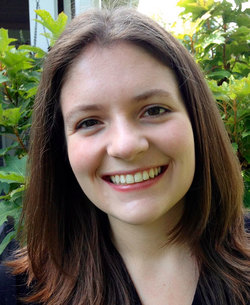 Elizabeth Baker
Elizabeth Baker
Baker received a Fulbright-Nehru Award to travel to India, where she will be working in archives in New Delhi and Chennai and taking classes in Hindi.
Her dissertation on British imperial and gender history is all about representation, she said.
“At its heart, my work asks who speaks for India and for Indian women,” Baker said. “While it is encouraging to see how identity politics have begun to give a voice to the disenfranchised and oppressed that did not exist in the heyday of the British Empire, we still have a long way to go.”
Baker has also conducted research in Britain, with funding from Notre Dame’s Institute for Scholarship in the Liberal Arts and Nanovic Institute for European Studies.
“My project has one foot in Britain and one in India, and without the support of those institutions, I would not have been able to complete research that was essential for both my Fulbright grant proposal and my dissertation.”
Andrea Castonguay
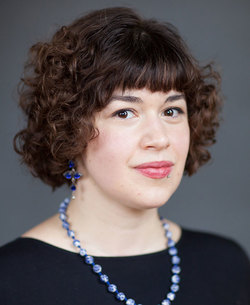 Andrea Castonguay
Andrea Castonguay
Castonguay will be spending a year in Morocco to improve her Arabic, deepen her knowledge of Islamic law and its development, and research the medieval Islamic scholars who lived in North Africa and Spain during the Almoravid dynasty.
Medieval Muslim scholars recorded their lives in biographical collections to preserve knowledge of their legal decisions, their teachers and students, their relationships with political leaders, and their travels.
“By mining these works, I plan to build a database that maps the movement of these scholars to compare their travels to what we know about the spread of Islam in North Africa at the time,” she said.
American scholars have long overlooked the history of North Africa and the expansion of Islam, Castonguay said, and missed opportunities to connect with other scholars in the region.
“The fact that the Fulbright Commission recognized the profound need for increased communication between American and North African scholars—and the need for a deeper understanding of the region’s history—is a very good sign for us as a whole,” she said.
Raymond “JR” Drause
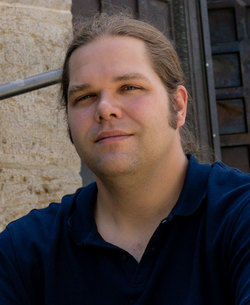 Raymond “JR” Drause
Raymond “JR” Drause
For his dissertation, Drause will travel to Russia, researching Siberian development in the 19th century. Like the other Fulbright scholars, he said the Notre Dame community has been instrumental to his success.
“It is always gratifying and uplifting when someone believes in your work,” said Drause, whose research has also been supported by the Nanovic Institute. “And I want to thank my advisers and colleagues who have provided feedback and encouragement over the years.”
Drause believes the Graduate School’s Office of Grants and Fellowships, and its former director Michael Westrate, deserve immense credit for the University’s success with the Fulbright Program.
“The office provides workshops, lunch-and-learn events, and countless draft reviews,” he said. “They offer support at every step of the application process.”
Garrett Fontenot
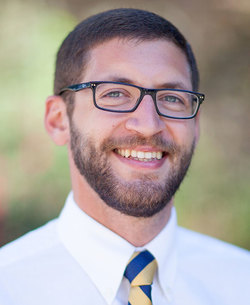 Garrett Fontenot
Garrett Fontenot
Fontenot’s dissertation explores the political culture of the French Empire in the second half of the 18th century, particularly in France’s former colonies. As a Fulbright scholar, he will be based in Montreal, but will travel throughout Quebec and Ontario to access manuscripts and primary sources.
“Winning a Fulbright represents one of the most humbling and proudest moments of my career,” he said, “especially since I have the honor to receive it alongside so many others in my graduate cohort.”
Fontenot said his mentors at Notre Dame encouraged him to pursue his academic interests in American history beyond the borders of the United States.
“The faculty in the Department of History have inspired me to not shy away from challenges and to pursue bold and innovative ideas when I had them—which led me to take an interest in Canada and, ultimately, apply for the Fulbright.
“I am excited to represent both the United States and Notre Dame in my year in Montreal.”
Danae Jacobson
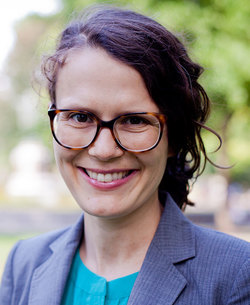 Danae Jacobson
Danae Jacobson
Jacobson is also headed to Canada, to conduct archival research in Ottawa, Ontario, and Montreal, Quebec. She is focusing her dissertation on the intersection of environmental and religious history in North America.
In particular, Jacobson studies communities of religious women who lived and worked on the frontier in North America in order to better understand spiritual landscapes and 19th-century westward expansion.
“On campus, I work with strong scholars in both religious and environmental history,” she said. “This combination is hard to find at a university and tremendously helpful in my research.”
To help prepare her application, Jacobson participated in a multi-week summer workshop offered through the Office of Grants and Fellowships, which provided constant support throughout the process.
“I would not have won—or even applied—without their encouragement,” she said.
Sean Sapp
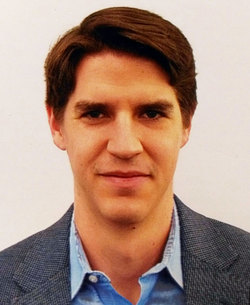 Sean Sapp
Sean Sapp
Sapp will travel to Belgium to do archival research on the confessors of late medieval Burgundy, using manuscripts from the 15th century. He aims to understand why and how confessors made choices between their religious and secular responsibilities.
Spending nine months in the country as a Fulbright scholar will be invaluable, he said.
“It takes time to get familiar with each archive and each manuscript,” Sapp said. “The time I’ll be able to spend there allows for careful and reflective research that will make my project stronger.”
Sapp credits the University’s Summer Language Abroad program with helping him become a more competitive Fulbright candidate (Castonguay and Fontenot also were SLA grant recipients). He received a grant from the Center for the Study of Languages and Cultures to spend summer 2015 in Belgium studying Dutch—the primary language of most scholars in late medieval Burgundy.
“While I was there I made key connections to scholars at the university where I’ll now be researching,” he said. “And I believe my willingness to learn Dutch clearly marked me as someone deserving of the grant.”
Originally published by Carrie Gates at al.nd.edu on September 21, 2016.